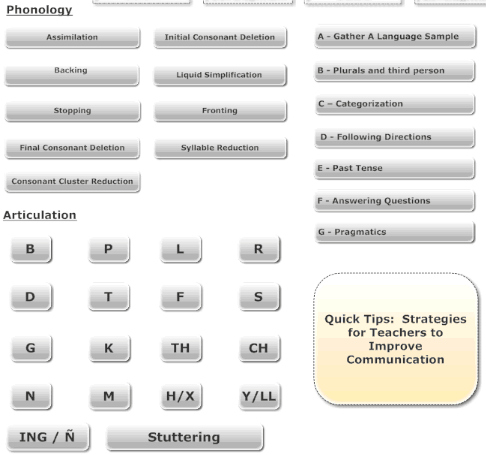 In an age when we are supposed to be experts at everything, have we grown to the point where we are doing ourselves and our clients a disservice?
In an age when we are supposed to be experts at everything, have we grown to the point where we are doing ourselves and our clients a disservice?
When I was young, my brother and I had a game called pet store. One of us would have our arm pinned down while the other told a story walking his fingers up and down the other person’s forearm.
Each animal’s claws got sharper or the animal stomped harder until your forearm was a scratched, bruised mess. No one made it to the dreaded ELEPHANT because you caved in and cried mercy.
I told this story to a friend, and he said that he and his brother had a game called typewriter. His brother would sit on his chest and type by poking him in the forehead and then slap the side of his head and yell “ding!” before starting to type another line.
So the question is this: Have we lost the ability to cry Mercy?
If you have a client or a student and you are not making progress, what do you do? Nothing? Tell the parent? Seek a colleague? How long do you go without progress before saying something?
When your caseload of 45 students turns into 65, what do you do? Do you sit on it? Pray for summer? Ask for help?
In an age when all knowledge seems like it is one Google search away, I think that many of us are needlessly suffering from the idea that we are supposed to know everything and do everything. That if we are struggling, it is due to a personal shortcoming and we just need to ____________ more. Fill in whatever word is your standby: KNOW / DO / BE, etc.
We are all experts, just not at the same thing.

With the disorder areas that I treat really well, I can effect change immediately or within a couple of months. If I hit 90 days with no discernible improvement, I have to be brave enough to say “I don’t know, let me find someone.”
We are killing ourselves.
How do you feel when that child is not making progress? Awful. Maybe he or she is the sort of client who will not progress. But do you truly know? Have you asked someone with different experience/resources than you? Only that quest will land you back at a good night’s sleep. We need to forgive ourselves for not knowing how to treat every disorder and get real. Even if you did know everything today, research on ways to improve is coming out at an ever-increasing pace. So, forgive yourself for being human and commit yourself to learning.
Bottom line, if you have not made discernible progress in a while, call someone. If a client from last school year or last month makes you feel icky because you felt ineffective, find a CEU course on that topic.




I fell terrible and guilty. I am looking to do better my services but my caseload is big, and now with the new school schedule time for intervention ….is crazy !! I am looking to find to do a great services ( activities) and find the way how can I help my school kids.
You are not alone! And I think this is a huge issue for our field. ASHA and everyone are working to get more SLPs into the field but we are not going to stay around if we go to work feeling bad every day. You are doing an amazing job simply by recognizing the difficulty that our job presents. There is no fault to be felt by you. I am sure you are doing the absolute best with the available resources.
We have been having success with curriculum-based intervention, using the teacher content to address the different speech and language needs. This has really cut down on our planning time, teachers are really happy, and the progress with students has been better because they can apply their new words and sounds right back into the classroom immediately. We have some presentations this fall on our findings and hope to share more of the outcomes and how-tos through this blog and website soon.
Amen! My caseload entails 4250 minutes of therapy per week to 78 kids. How can I be effective to 5 children in arctic groups? They are going on to third and fourth grade with speech impairments still!
The field has been doing some really good things such as the 3:1 model to improve this but I think that we have completely missed the mark on a few issues.
For example, Speech leads are concerned about support for their staff, admin is concerned about budget, SLPs are concerned about caseload numbers. 2 independent studies showed that each child in special ed. costs about $5000 more than a Gen Ed student. Yet, do we focus on getting students into special ed or out? I looked at the last 3 state (Texas) convention presentation lists. Tons of stuff on RTI (into sped) and nothing on successfully dismissing students (out).
Here is another example: 87% of children with Speech Sound Disorders have Phonological Deficits (Dodd,2004). That’s only 13% for artic!! Yet, what did we focus on in grad school/what resources do we have available/what courses are offered at conferences? Artic! At best we might see a phonology/articulation mix, but why aren’t we focused on the problem? We have to take responsibility for our own education and development. However, what is truly available to us?
Einstein said: “We can’t solve problems by using the same kind of thinking we used when we created them.”
I live and work in a small Canadian town in a large rural county. Most of the time there isn’t ‘someone else’ who can see the child. I can usually talk to or email someone but there isn’t the option of sharing the load. And it is difficult to get the right CEU course at the right time (and for the right cost and not too far away!). Most of the time, I figure something out. But sometimes I just don’t know what to do next. I am getting better at communicating this to families but it is still hard. It is somewhat reassuring to know that I am not alone.
We work in a community that does not allow us to meet as a group to problem solve difficult cases. We have to rely on our own ability to contact other SLP’s to seek help with cases that we are unsure of. It is also evident that we are expected to see more and more students with no consideration of the vast diversity of cases and expectations on us to meet their individual needs. Opportunities within our district for professional development that relates to our providing better services to the needs of our students is virtually non – existent. We are expected to find our own professional development, do our own research and problem solve our own ways of treating more and more students with less and less administrative understanding of what our work load entails.
I think you did a better job than me explaining the potential for isolation in this field. When I fist came over to education I found it so bizarre that you could spend your day in a building of 600 people and feel alone. But it’s true! Without community you don’t have people to bounce things off of. You wonder if you are the only one who struggles with something or wonder if you really should know how to treat some students effectively. The internet has really transformed how we can access information that is timely and vital.